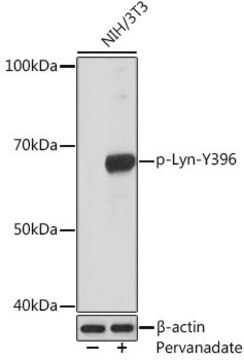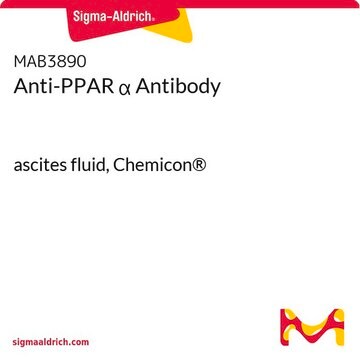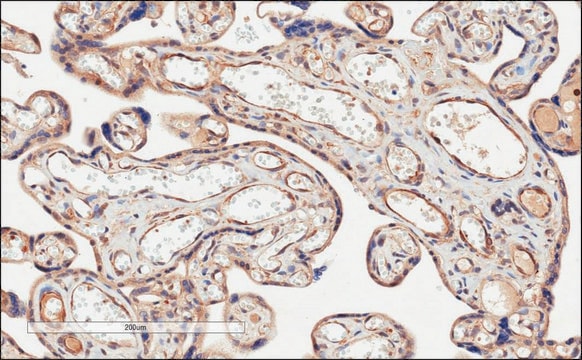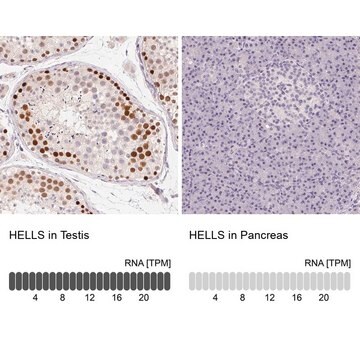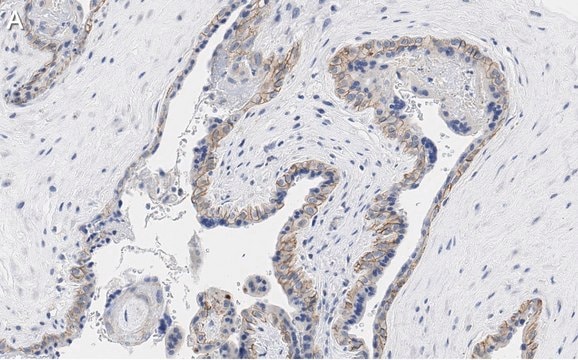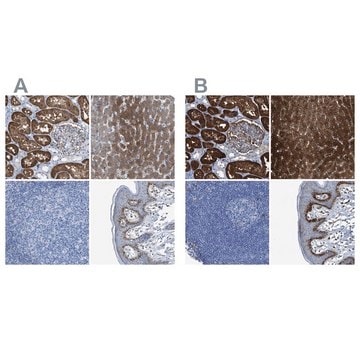SAB5900202
Alpaca Anti-PD-L1, recombinant single domain Antibody
Recombinant Alpaca(VHH) Nano antibody
Sinónimos:
B7-H, B7H1, PD-L1, PDCD1LG1, PDL1
About This Item
Productos recomendados
biological source
alpaca
Quality Level
recombinant
expressed in E. coli
conjugate
unconjugated
antibody form
affinity purified VHH antibody
clone
PL03, monoclonal
assay
>95% (SDS-PAGE)
form
lyophilized solid
mol wt
14.4 kDa
~ 15-18 kDa (SDS PAGE under reducing condition)
purified by
immobilized metal affinity chromatography (IMAC)
species reactivity
human, (Cynomolgus macaques)
concentration
1 mg/mL
technique(s)
ELISA: 1:10000-1:100000
flow cytometry: 1:50-1:100
immunofluorescence: 1:200-1:800
immunohistochemistry: 1:200-1:800
western blot: 1:1000-1:3000
color
colorless
pH
( in PBS, pH 7.4)
isotype
VHH
Protein ID accession no.
UniProt accession no.
shipped in
ambient
storage temp.
2-8°C
target post-translational modification
unmodified
Gene Information
human ... CD274(29126)
General description
Single-domain antibody (sdAb), also called nano-antibody, is the variable region isolated from the antigen-binding variable domain (VHH) of camelid heavy-chain-only antibody. It lacks light chains and a first constant domain(CH1). This configuration confers a number of unique advantages over conventional monoclonal antibodies. The small size of just 15 kDa (2~4 nm), single-domain antibody is the smallest antigen-binding fragment that can easily penetrate tissues, allowing them to bind epitopes that are inacessible to conventional antibodies. The small size and monovalency makes it a superior tool in microsopy. These single-domain antibodies offer superior chemical (wide variety of pH, urea, etc) and thermal stability and increased solubility than conventional antibodies. All our antibodies are tested to ensure the highest level of specificity, sensitivity and reproducibility.
Specificity
Immunogen
Application
Packaging
Physical form
Reconstitution
Storage and Stability
Other Notes
Storage Class
12 - Non Combustible Liquids
wgk_germany
WGK 1
flash_point_f
Not applicable
flash_point_c
Not applicable
Certificados de análisis (COA)
Busque Certificados de análisis (COA) introduciendo el número de lote del producto. Los números de lote se encuentran en la etiqueta del producto después de las palabras «Lot» o «Batch»
¿Ya tiene este producto?
Encuentre la documentación para los productos que ha comprado recientemente en la Biblioteca de documentos.
Nuestro equipo de científicos tiene experiencia en todas las áreas de investigación: Ciencias de la vida, Ciencia de los materiales, Síntesis química, Cromatografía, Analítica y muchas otras.
Póngase en contacto con el Servicio técnico
